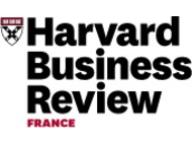Faculty News
—
Joint research from Professor Sabrina Howell examining how private equity buyouts affect the quality of care in nursing homes is cited
—

Excerpt from Quartz -- "Advocates say that these and other problems have only intensified as large companies began buying and consolidating nursing home franchises. Around 70% of nursing homes in the US are under for-profit ownership, and, since the 2000s, private equity firms have purchased many facilities, hoping to cut costs and increase profits. One recent analysis, published by the New York University Stern School of Business, found 'robust evidence' that private equity buyouts were linked to 'declines in patient health and compliance with care standards.'"
Faculty News
—

Excerpt from Quartz -- "Advocates say that these and other problems have only intensified as large companies began buying and consolidating nursing home franchises. Around 70% of nursing homes in the US are under for-profit ownership, and, since the 2000s, private equity firms have purchased many facilities, hoping to cut costs and increase profits. One recent analysis, published by the New York University Stern School of Business, found 'robust evidence' that private equity buyouts were linked to 'declines in patient health and compliance with care standards.'"





















